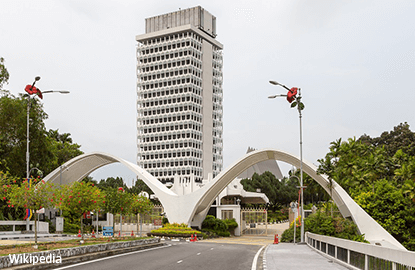

KUALA LUMPUR (Feb 23): Informed Malaysians trust the media and distrust the government compared with the general masses, the Edelman 2016 Trust Barometer Malaysia Report has found.
People also rated peer figures more credible than company CEOs, NGO representatives and elected officials, in findings that showed that the most influential people in society were also the least trusting of authority figures.
Overall trust in the government was at less than 40%, and depended on how informed and educated a respondent was.
Those with university education and who are heavy consumers of news are less trusting of the government than the majority of the population, according to the study.
It found that only 34% of what Edelman termed as "informed public" trusted the government compared to 39% of the "general population" category.
For other institutions, 67% of the informed public trusted business, 71% trusted NGOs and 59% the media. Among the general population, 58% trusted business, 61% NGOs and 45% trusted the media.
The latest trust survey, Edelman's fifth for Malaysia, is released today along with a forum to discuss the impact of its findings that are meant to guide the media, government, businesses and NGOs with changes in society.
Among the panelists are former minister Tan Sri Rafidah Aziz and political analyst Dr Oh Ei Sun.
Edelman, which conducted its survey between October 13 and November 16 last year, defines "informed public" as university graduates between the ages of 25 to 64 and who earn in the top 25% of household incomes for their age group. They consumed significant amount of news media, including business news, and are considered 15% of the population.
Trust towards government
The drop in trust towards the government among the informed public category was by 11% from the previous year's survey, when it was 45%. The drop was not as big in the general population category, which fell 7%.

In the global picture, Malaysia's general population respondents registered 39% trust towards their government in the latest findings, the lowest compared to other countries surveyed in the region.
Indonesia, for example, registered 58% trust towards its government and Singapore 74%.
Some 57% of the general population group were also more optimistic about the future, believing that "they and their families will be better off in five years' time", while only 51% of the informed public felt the same way.
Media and credible voices
More among the informed public said they trusted the media at 59%, an increase from 46% previously, compared to the general population group where 45% trusted the media.
The Edelman survey also found that social media, using search engines and television, were the top three most-used sources of news, with 81% of the general population group in Malaysia relying on social media for news several times a week or more.
For traditional media, 56% of the general population said they relied on newspapers and 41% on magazines. Some 41% favour blogs as a news source.
Trust levels towards voices in the media also showed a drop for those in positions of authority, with only 35% of the general population finding government officials credible.
Company CEOs (56%), board directors (51%) and NGO representatives (43%) also did not fare as well as academics (69%) and technical experts (67%), when respondents were asked to rank the credibility of these spokesmen.
A significant finding, however, was the growth in the number of people who found a peer figure or "person like yourself" as more credible. This grew from 51% in previous findings to 57%.
People also had more trust for social media content creators and online information sources who were their friends and family (74%), academics (73%) and companies that they used (68%).
There was less trust for online content created by elected officials (53%), company employees (49%) and celebrities (30%).
Journalists fared rather poorly as content creators, with only 40% saying they trusted information from a journalist.
New realities
Edelman said that the overall findings, unlike before, showed the greater power of peer-to-peer influence compared to the "top-down" transmission of information.

"Elites" no longer monopolised information which was now more accessible to more people.
Along with democratisation of information were revelations of high profile "greed and misbehaviour" which contributed to the greater distrust of authority.
Some consequences of these findings also showed "increasing distrust among mass population" and "mass movements based on dissatisfaction and urgency", the survey found.
Edelman also found that business, compared to the media, government and NGOs, was looked upon as the institution which could be trusted to "keep up with the changing times".
Malaysian respondents from both the informed public category (77%) and the general population group (68%) felt that business could be trusted more to keep up with change compared to government (39% and 44%, respectively).
Most people also agreed that "business must lead to solve problems" at 85%, an increase from 78% previously.
Edelman's worldwide trust surveys over the last 16 years since 2001 have traced the shifts in sources of mass influence.